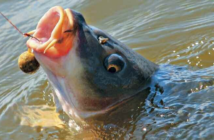Авторы: академик, профессор Романенко В.Н. и академик, профессор Никитина Г.В.
Через наш журнал можно связаться с авторами.
PREFACE
The famous Moravian educator John Amos Commenius (Yan Amos Komensky) was the first theorist who clearly formulated the idea that the system of education is divided into four parts (Comenius, 1967; Lukaš, M. & Munjiza, 2014). Since then, the College and the first years of University education have been referred to as the tertiary educational level. There are many reasons why the training process at the elementary and secondary schools is studied more extensively than at the tertiary level. The educational strategy at the pre-graduate and post-graduate periods is closely connected with future practical activities of students. Therefore, this strategy is more certain than at the tertiary level. As a result one can say that the educational strategies at the tertiary level should be given the maximum attention. The new challenges of XXI Century affected the whole world system of education. They made serious corrections to the main ideas of the instructional practice at the tertiary level. Some of these ideas were discussed at the annual conferences at the Latvia University of Agriculture. All materials of these discussions and some additional articles are the basis of this book. A number of these materials were previously published in Russian. However, we are not going to give references to these Russian articles. If necessary, we shall refer to our books (Nikitina &Romanenko, 1992; Romanenko et al., 2008). In this book we focus attention on the computer-assisted learning and new methods of information search. We believe that such a joint analysis will make it possible to identify several new approaches for instructional practices. The authors also proposed the classification and ranking of skills that are essential for the engineering background. This classification has additional independent value.
It has been an established intellectual tradition that the process of education at 6 all four levels has to be described as a set of methods on the creation of theoretical knowledge and a set of particular professional skills. With this approach all personal behaviours of students and teachers are excluded from consideration. The affect of information from environment on the instructional process was also excluded. Therefore, the greatest part of theoretical studies of instructional practice has some serious restrictions. A more general approach requires description of the instructional process as a triad:
STUDENT BEFORE INSTRUCTION→INSTRUCTIONAL ACTIONS→STUDENT AFTER INSTRUCTION










